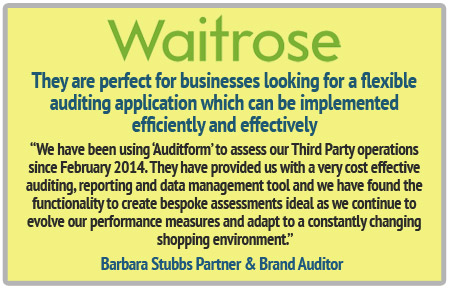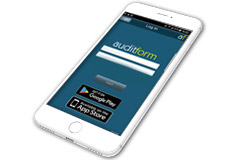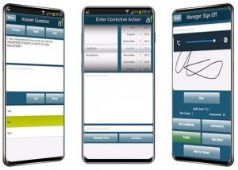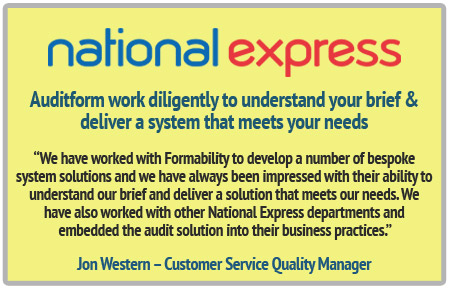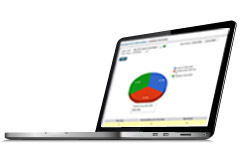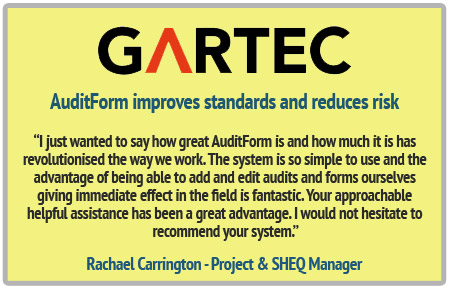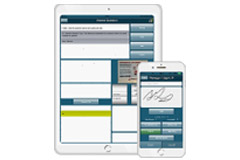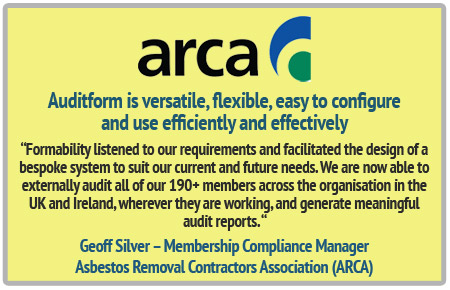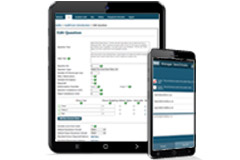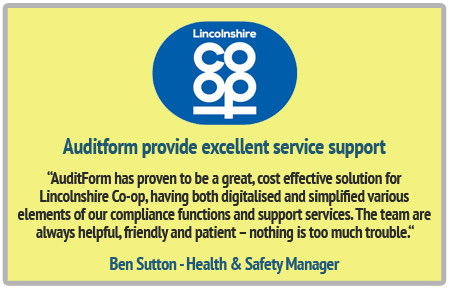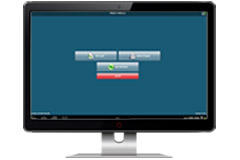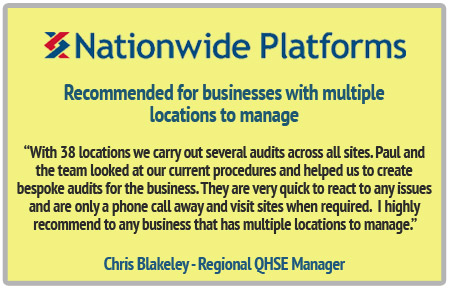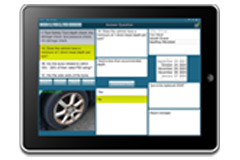Best Audit Software Tools for Efficient Auditing
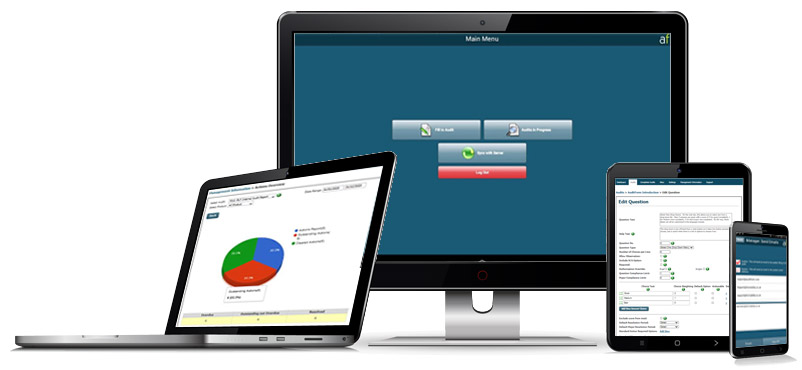
Improving Processes with Audit Management Tools
Audit management tools epitomise the confluence of precision and efficiency, serving as the lifeblood of streamlined audit processes. By automating repetitive tasks and standardising procedures, these tools free auditors from the mundane, allowing them to focus on the finer nuances of assurance and analysis. Such systematic organisation reduces the potential for errors, ensuring that the audit process adheres strictly to the regulatory frameworks and protocols enacted to govern them.
In a sphere where time is of the essence and accuracy is paramount, audit software tools act as a robust fulcrum. They equip auditors with a “single source of truth”, centralising data and facilitating real-time collaboration. This coalescence of functionalities is not just about saving time; it elevates the quality of internal audits, delivering insights and foresights that would otherwise be lost in the noise of manual processes. Consequently, the decision-making process is enhanced, forging a path for auditors to deliver high-calibre results with unwavering consistency.
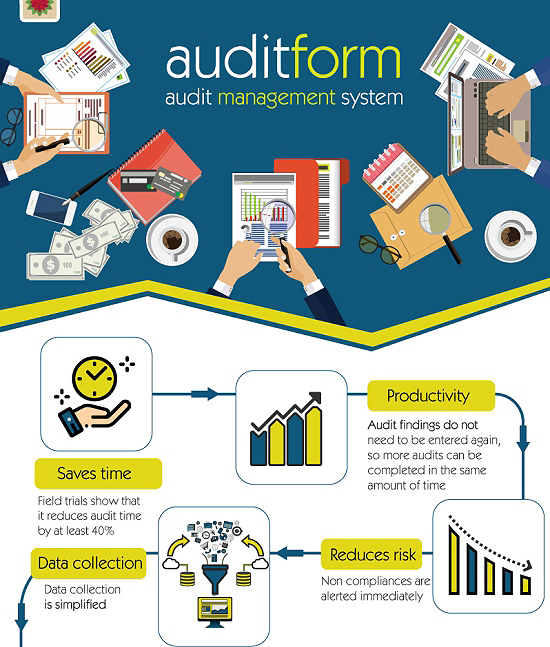
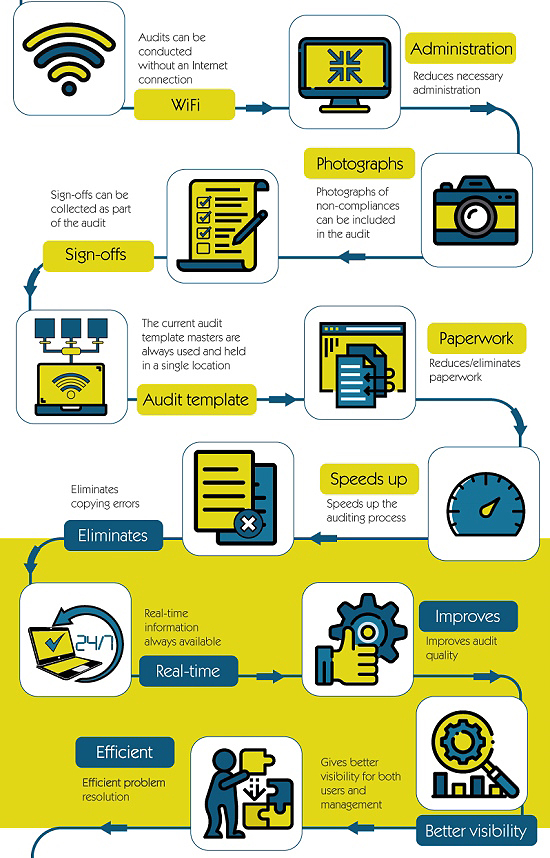
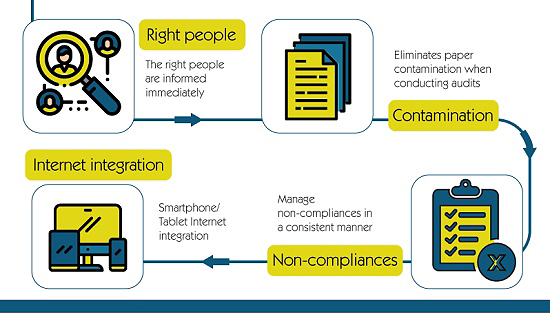
Audit Planning Precision
Effective audit planning is fundamental—streamlining the entire engagement process and ensuring the thoroughness of the audit activities.
Automated audit planning tools significantly enhance efficiency, allowing for a meticulous approach to each unique audit scenario.
By utilising the audit planning tools incorporated in audit management software, auditors can accurately scope projects, allocate resources efficiently, and set realistic timelines, thus ensuring a focused audit process.
These tools enable the anticipation of potential challenges—facilitating proactive measures and adjustments which are crucial in maintaining audit quality and adherence to compliance standards.
Real Time Auditing Systems
Real-time capabilities redefine auditing dynamics.
Adopting real-time auditing systems fundamentally transforms conventional audit methodologies. They permit continuous scrutiny and review of ongoing transactions and controls. Significantly, they act as a deterrent against irregularities as they provide an omnipresent oversight mechanism. Such systems are the epitome of vigilance, serving as an unblinking eye over financial processes.
Enable immediate corrective action through live data analysis.
With real-time systems, reactions are immediate, not retrospective – a paradigm shift from traditional audit timing tactics. This immediacy ensures exceptions are dealt with as they arise – before they mushroom into larger issues – thus enhancing risk management and resolution responsiveness during the auditing cycle.
Ensure compliance with regulations through continuous monitoring.
Real-time auditing systems are instrumental in maintaining regulatory compliance, offering a dynamic approach that adapts swiftly to changing regulations. By integrating these systems, organisations commit to the highest standards of accountability, crucially before the United Kingdom’s audit reform in 2023, where such capabilities will likely become more pronounced in their importance. These systems, therefore, represent an invaluable asset for auditors committed to upholding and surpassing regulatory expectations in the modern era.
Online Internal Audit Simplification
Online internal audit tools streamline the audit process remarkably.
Since their inception, audit software tools have revolutionised the auditing landscape, offering auditors precision and efficiency previously unattainable. With features such as audit planning tools and audit data analytics tools, professionals can navigate the complexities of audit trails and regulatory demands more deftly.
Moreover, remote audit technology has catalysed the transition to virtual audit process automation, enabling auditors to conduct thorough reviews regardless of geographical constraints. These smart audit tools provide a comprehensive suite of capabilities including, but not limited to, document management, risk assessment, and audit report generation.
Implementing cloud-based audit tools within the audit workflow has proven to diminish the time and resources spent on manual tasks. Through automation, these integrated platforms can generate insights and produce reliable data for informed decision-making, ultimately amplifying audit efficacy and assurance levels.
In summation, the utilisation of online internal audit software is a strategic imperative for contemporary audit practices, fostering robust compliance and quality assurance outcomes.
Improving Accuracy with Audit Data Analytics Tools
Employing audit data analytics tools facilitates a meticulous approach to examining intricate financial records. These powerful instruments scrutinise vast quantities of data with impeccable precision, ensuring that any anomalies or inconsistencies are promptly identified. Such audit analysis tools are essential for a modern auditor, serving to enhance the veracity of their findings and conclusions.
In an era where data is king, auditors must adopt a “digital-first mindset”. Advanced audit data analytics tools are pivotal to this philosophy, enabling the interrogation of datasets in a manner that is both exhaustive and efficient. By doing so, they not only reinforce the integrity of the audit process, but also empower auditors to harness the potential of big data to deliver exceptionally insightful and accurate audits.
Continuous Auditing Technology
Continuous auditing technology is emerging as an indispensable component for dynamic audit environments. It underpins the automatic monitoring and analysis of financial transactions and controls round-the-clock.
This technology acts as a pivotal element in sustaining audit quality and efficiency, leveraging the power of real-time data collection. With continuous auditing technology, auditors can proactively address risks, eliminating the lag time between data generation and analysis. The immediate recognition of anomalies facilitates prompt corrective measures, fortifying the financial reporting process against material misstatements.
Moreover, this technological paradigm shift ensures a perpetual state of audit readiness. By employing continuous auditing technology, firms can maintain an ever-vigilant eye on their control frameworks and taxation. This results in enhanced oversight, enabling auditors to identify and respond to risks with greater alacrity.
Fundamentally, continuous auditing technology represents an evolution in how audits are performed, allowing for an ongoing assurance process. By rendering traditional periodic audits a thing of the past, continuous auditing forges a path towards perpetual compliance and sophistication. Enhanced decision-making, driven by a constant stream of audit evidence, ensures that businesses stay aligned with their financial and regulatory obligations.
Enhanced Data Analysis for Audits
Harnessing advanced data analytics tools for auditors is now a quintessential facet of contemporary auditing practices.
With the integration of data analysis for audits within audit management software, audit professionals can dissect large datasets with enhanced precision, unravelling insights that were hitherto obscured.
Contemporary audit software tools are designed to accommodate complex algorithms, offering capabilities to extrapolate trends and predict potential areas of risk.
Implementing these sophisticated audit analysis tools requires a strategic approach, ensuring they align with an organisation’s existing technological infrastructure and audit objectives.
As such, auditors are empowered to perform deeper, data-driven examinations, bolstering the overall integrity and reliability of audit findings.
Automating Compliance with Smart Audit Software
In the digitised world of internal audits and compliance, smart audit tools are revolutionising the way organisations uphold regulatory standards. By harnessing audit automation tools, companies can effectively manage and synchronise myriad compliance requirements, mitigating risks before they manifest into material issues.
The beauty of these systems lies in their capacity to transform traditionally arduous compliance tasks into streamlined, automated processes. Whether through real-time auditing tools or cloud-based audit platforms, organisations harness these technological advancements to perpetually monitor controls, ensuring continuous adherence to evolving regulatory landscapes.
With the advent of remote auditing software, the assurance process remains uninterrupted, regardless of physical location, thereby enhancing the resilience and robustness of compliance frameworks.
Regulatory Compliance Automation
Regulatory compliance automation is essential for maintaining adherence without the taxing manual oversight.
- Policy Management: Codify and centralize regulatory policies for uniform application across the enterprise.
- Automated Controls: Implement technology to monitor compliance controls in real-time, reducing manual checks.
- Alerts and Notifications: Set up systems for instant alerts on compliance deviations, ensuring immediate action.
- Regulatory Reporting: Automate generation of compliance reports, simplifying the audit trail and decision-making.
- Risk Assessment Modules: Embed risk assessment software that proactively identifies and analyses potential compliance risks.
- Document Management: Utilise document management systems for audits to maintain and access essential records efficiently.
- Audit Trail Systems: Establish audit trail systems that record each step, providing transparent insight into compliance status.
- Training Modules: Deploy automated training platforms to keep staff informed of regulatory changes and requirements. Automated solutions enhance control over compliance processes, ensuring higher accuracy and efficiency.
Leveraging automation reduces time invested in compliance activities, allowing for redirecting focus towards strategic tasks.
Risk Assessment Digitalisation
Risk assessment is vital to ensure diligence and foresight in the auditing process. The integration of digital platforms has allowed for enhanced precision and streamlined risk analysis, positioning organisations to act proactively in managing potential threats.
The advent of sophisticated risk assessment software has transformed the audit landscape. These tools enable auditors to quantify and evaluate risks with greater accuracy, utilising complex algorithms and predictive analytics to identify patterns and forecast potential compliance issues. Consequently, organisations benefit from a heightened ability to implement preemptive measures, thereby mitigating risk more effectively.
Digital risk assessment solutions foster a robust decision-making framework. By leveraging real-time data collection and analysis, auditors can adapt their strategies with agility, aligning risk management practices with the ever-evolving business and regulatory environments. This dynamic approach aids in maintaining a resilient and compliant operational stance.
Moreover, risk assessment digitalisation promotes the thorough documentation of risk analysis, ensuring that decisions are traceable and justifiable. Such transparency is critical in demonstrating due diligence to stakeholders. Emerging tools offering a plethora of features, from simulation capabilities to scenario analysis, provide an indispensable resource to enhance the risk assessment process. As a result, organisations can secure their operations against unforeseen hurdles, embedding resilience and agility into their audit and compliance framework.
Advantages of Cloud-Based Audit Solutions
The transition to cloud-based audit solutions offers numerous advantages, chief among them being the facilitation of remote auditing capabilities. With the ascendancy of online internal audit software, auditors can now access and review audit trails, manage documents, and collaborate with team members from virtually anywhere, providing much-needed flexibility in the current global business landscape.
Moreover, cloud-based audit tools underpin a streamlined virtual audit process automation, leading to increased efficiency and resource optimisation. This technology enables the continuous updating and sharing of data across a secure platform, offering real-time auditing tools which allow for timely identification and response to potential risks and compliance issues.
Furthermore, scalability and reduced inventory and IT overhead are tangible benefits that cloud solutions deliver, making them an increasingly preferred choice for enterprises looking to enhance their audit functions efficiently.
Remote Audit Efficiency
Remote auditing harnesses technology to transcend geographical limitations, ensuring audit continuity even in exigent circumstances, such as the current global situation. Streamlined processes and enhanced accessibility guarantee that audits can proceed unfettered by physical constraints.
Remote audit technology bolsters the efficacy of audit teams, integrating remote auditing tools for seamless collaboration and oversight. Sourcing the best audit software tools is pivotal in the establishment of a cohesive and efficient remote auditing strategy, equipping auditors with the necessary infrastructure to execute audits from disparate locations with exactitude and coordination.
The implementation of advanced audit data analytics tools facilitates the identification, analysis, and reporting of findings with greater speed and accuracy. Utilising cloud-based audit tools, such as enterprise audit software in the cloud, auditors can leverage real-time data, collate substantive evidence, and adjust their audit planning tools in response to dynamic audit environments. These capabilities vastly improve the audit process’s nimbleness and reliability.
In the realm of audit efficiency, remote audit technology stands as a testament to innovation – a smart audit tool that reshapes the traditional audit paradigm. It offers scalability, continuous auditing technology, and robust document management for audits, accompanied by stringent security measures. With the option for auditors to download audit software tools or engage in an audit software tools free trial, accessibility to remote auditing solutions is straightforward. Pondering on long-term strategy, the evaluation of audit software tools pricing becomes essential for ensuring a balanced investment finances in quality assurance and regulatory compliance.
Virtual Audit Security
Virtual audits demand stringent security protocols.
Ensuring the confidentiality and integrity of audit data is paramount. Auditors must demand robust security features within their audit management tools, such as end-to-end encryption, two-factor authentication, and regular security updates. Consequently, due diligence on the part of the auditors is essential in selecting secure audit software tools.
Secure transmission ensures data integrity during audits.
Effective virtual audit security hinges on the tools’ capability to mitigate risks associated with data breaches and cyber threats. Audit software must provide a secure online environment with encrypted data channels and access controls to protect sensitive audit information.
Constant vigilance is key in a virtual audit space.
Implementing advanced security measures within audit tools software is inevitable as the adoption of remote auditing tools becomes more prevalent. As remote auditing capabilities evolve, audit tools undergo rigorous testing to ensure they abide by the highest standards of data protection, thereby confirming their reliability for auditors and their clients.
Best Software Audit Tools
When it comes to choosing the best audit software tools for your organization, it’s important to consider factors such as a free trial, pricing, and overall quality. Many reputable providers offer a free trial period, allowing you to test the software and determine if it meets your specific needs. This trial period gives you the opportunity to explore the features and functionalities of the software, ensuring that it aligns with your auditing requirements. Additionally, it allows you to assess the user interface and overall user experience, ensuring that the software is intuitive and easy to navigate.
Pricing is another crucial aspect to consider when selecting audit software tools. Different providers offer various pricing models, such as monthly subscriptions or one-time purchases. It’s important to evaluate your budget and determine the level of investment you’re willing to make. Keep in mind that while some software may have a higher upfront cost, it may offer advanced features and capabilities that can significantly enhance your auditing processes. Consider the long-term benefits and potential return on investment when making your decision.
Audit Tools – Free Trial
When it comes to finding the best audit software tools, it’s essential to conduct thorough research and consider your specific requirements. Look for software that offers a comprehensive suite of features, including audit planning, data analytics, report generation, and automation capabilities. Additionally, consider the reputation and customer reviews of the software provider to ensure that you’re selecting a reliable and trusted solution. By carefully evaluating the free trial, pricing, and overall quality of the software, you can make an informed decision and choose the best audit software tools for your organization.
To download audit software tools, visit the official websites of reputable providers or trusted software marketplaces. These platforms often offer a wide range of audit software tools that you can download and install on your computer or access through cloud-based solutions. Before downloading, ensure that your system meets the software’s minimum requirements and that you have sufficient storage space. Additionally, consider the compatibility of the software with your existing systems and processes to ensure integration. Take advantage of the free trial period to test the software’s performance and determine if it meets your auditing needs before making a purchase.
Use Your Own Data and Take Auditform For A FREE Test Drive !
Get a “hands-on” introduction to Auditform’s functionality and get a real feel of what it’s like to use our app software for FREE.
Then use our software and interact with Auditform’s easy to use functions. It’s a great way to get a feel for how Auditform can benefit your organisation, ensuring you make an informed decision.

Helpful Insight & Development

Unrivalled Support

20 Year Successful Track Record
Happy Market Sector Clients
We Have Tailored Our App Very Economically To Meet The Specific Needs Of Many Different Organisations Around The World
Construction

Facilities Management

Inspection

Retail

Transportation

Engineering

Food Processing Safety

Manufacturing

Health & Safety

Consultancy
Other Articles
Effective Audit Systems Software for Seamless Auditing Processes
Audit Management Software, Efficient Solutions at Your Fingertips
Top Audit Tracking Software for Efficient Workflow Optimization
Efficient Software for Audit Processes: Simplify Auditing Tasks
Top Online Audit Software for Effective Management and Compliance
Audit Compliance Software: Essential Tools for Reporting
Top External Audit Software Solutions in the UK
Internal Audit Software For Effective Streamlined Operations

